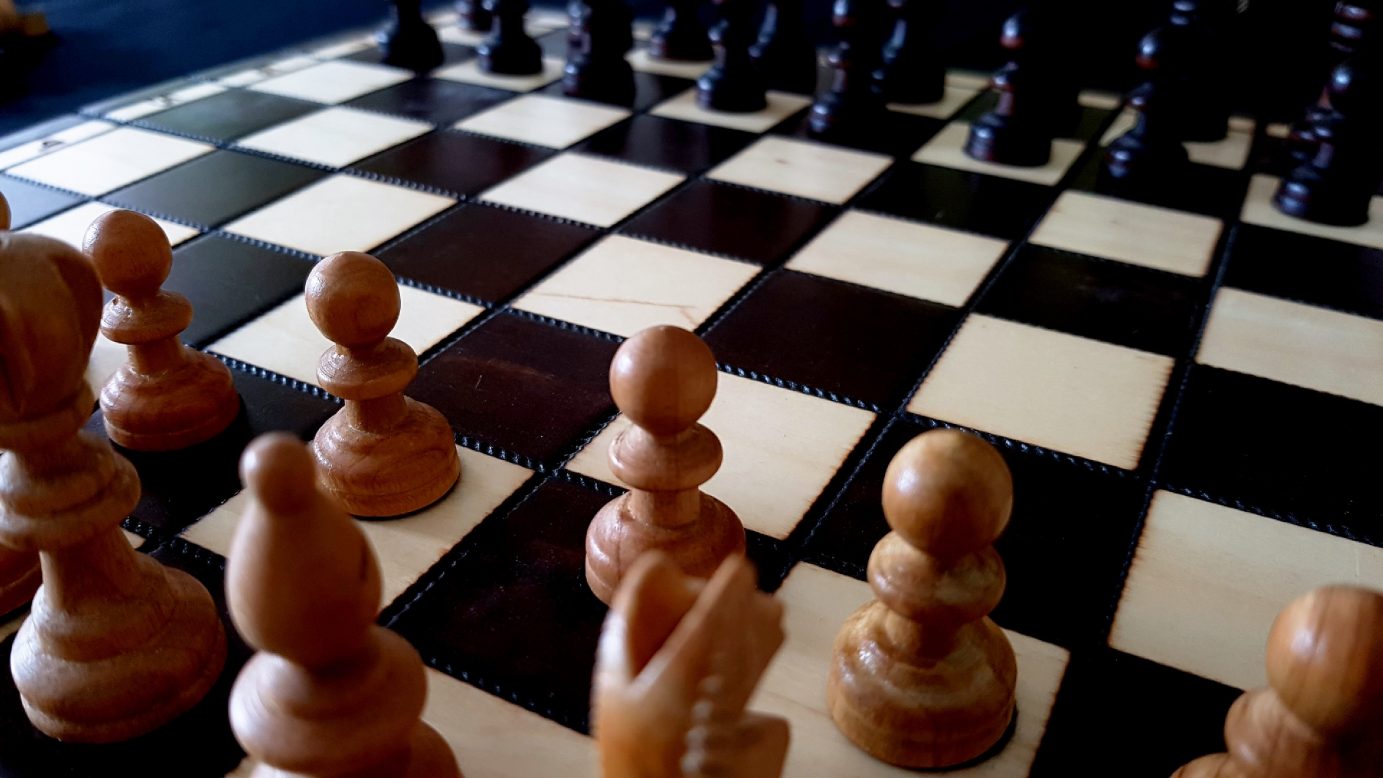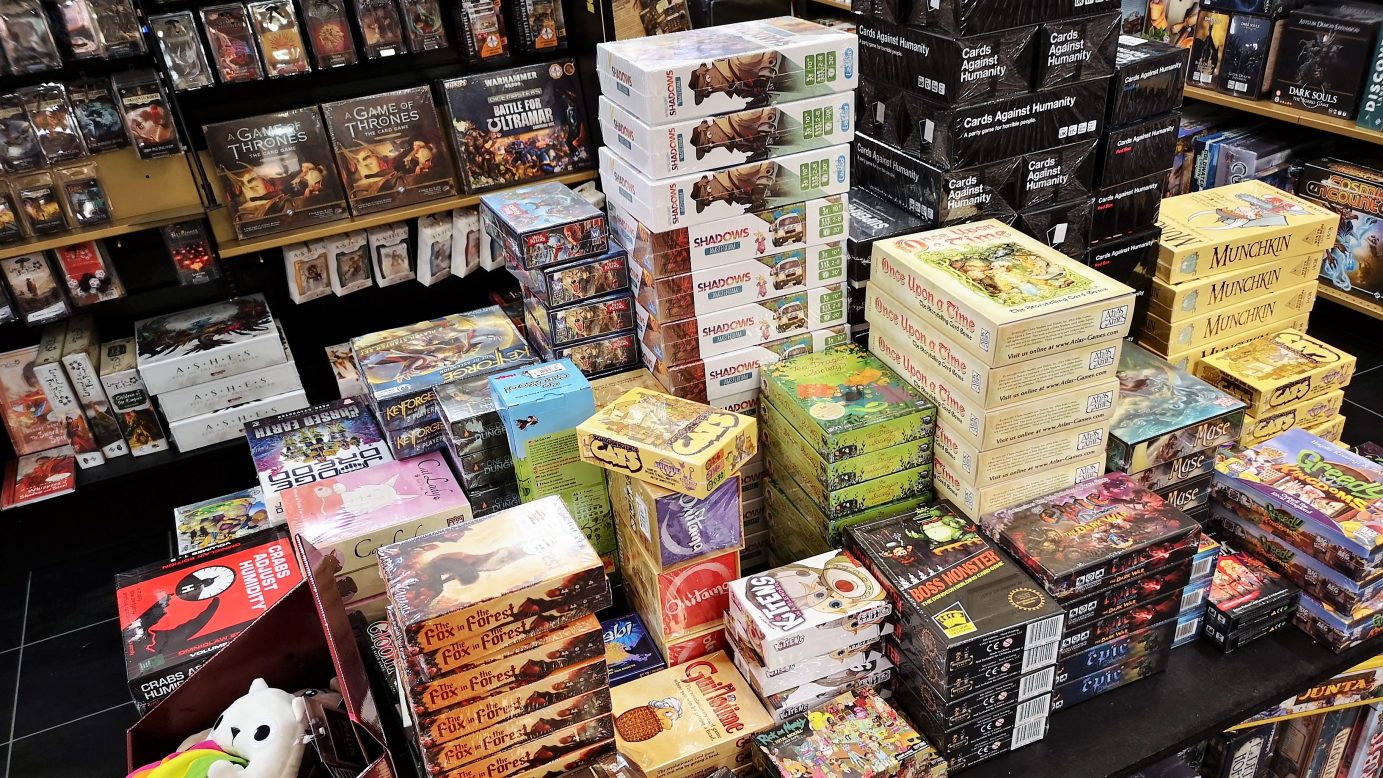Number Ten – If you like Monopoly you’d probably love Chinatown
Yeah, I’m more guilty than most of looking down on Monopoly even if I’m also, I think, generous in acknowledging what it does well. It’s the lowest rated game on this blog, and while I think I gave a lot of solid reasons for that I also think that the existence of that review is symptomatic of a problem we have in the hobby. We sometimes forget what games are supposed to be for. Yes, Monopoly is a badly designed game but it’s just a catalyst for meaningful time spent with the people around us. If people are having fun playing Monopoly, just let them enjoy it. Don’t be like me – a soulless joy vampire looking to sap the fun out of the lives of others.

And there’s a lot to like in the idea of Monopoly. Fate randomly deals you property, and that property has a value that can be brought out, in theory, with negotiation and deal-making. There’s a thrill of uncertainty – it’s a game infused with the soul of gambling. People have, for years, gotten pure happiness (and heartache) through nothing more than a roll of a couple of dice. Monopoly gives people that in spades – being completely subservient to the dice may not be a great game design element but it can be exciting.
So if someone likes those elements of Monopoly, I can’t think of a better replacement than Chinatown.

I made this comparison in the review – they are essentially the same basic game if you break them down into their simplest components. You get random properties. They have value. To increase their value you must trade with other people. Where Chinatown succeeds though is in making every part of the game electric. You gamble on tiles appearing and the wait to see who gets them builds meaningful suspense. Your trades are exciting because the consequences are understandable but unknowable. Every part of Monopoly that is good is contained in Chinatown and combined in such a way as to make for an almost perfect gaming experience. And, mercifully, it’s even a simpler game than Monopoly. It has fewer moving parts. Those parts just mesh together almost perfectly. The next time your family want to break out Monopoly on Boxing Day, lean into their enthusiasm and say ‘You know, I have another suggestion if you want a Monopoly shaped experience…’
Of course, given Chinatown’s unfortunate cultural stereotyping it might result in a slightly different awkward Christmas argument than the usual.
Number Nine – If you like Clue(do) you’ll probably love Mysterium
What is it people like about Cluedo (or Clue if you’re American)? It’s not usually the rolling of dice, or the exhaustive iteration over the same structural questions. That’s what you do but it’s not what people like. What they like is the mystery. They like the puzzle – solving a crime through patient deduction and investigation of a crime scene. Cluedo is an evocative game for those that have a hankering in their soul for a little bit of detective work.
/pic7563466.png)
And really, there are two directions you can go with a replacement for this. One is Sherlock Holmes Consulting Detective, and yep – it’s a great choice if you think you can get everyone around you to spend an evening reading densely detailed text from a choose your own adventure book. That seems like a tough sell. The thing about a board game is that it also has table presence, and Sherlock Holmes is more akin to reading a Fighting Fantasy gamebook than it is to playing an actual game. That is, at least, if you are uncharitable in your definition of what constitutes a game.

Mysterium, on the other hand, has a lot going for it as a sequal to Cluedo. It looks gorgeous, and if you think people might get into the spirit of the thing it’s an opportunity for some genuinely spooky and immersive gaming. The clues dealt out by the spirit are sophisticated. The discussion intense and wide-ranging. The conclusions can be insightful or just plain batshit. The framing of the experience is exquisite. Dim the lights, and have your spirit communicate only by ominous knocks on the table. It’s like a seance designed by Willy Wonka.
For a first time group that was expecting a simple game for nostalgic fun, it would probably be a good idea to strip out some of the more obviously cumbersome mechanistic elements – voting in particular. Mysterium though is a murder mystery LARP in a box and if anyone expresses nostalgia for Cluedo then you can say ‘You know, I have an idea for solving a murder that you might find interesting…’
Number Eight – If you like Connect 4 you’ll probably love Potion Explosion
There’s something primal and satisfying about connecting things together. It’s why Bejeweled and Candy Crush feel so urgent and immediate. Gotta make the connections. Gotta clear the board. Make the patterns, and you’ll make the brain feel good. It’s like it’s hardwired into our DNA – like we at some point in our evolution we were bred to sort glowing gems for alien overlords before being expelled from our home starbase for being drunk and disorderly. Connect 4 is a game that leans heavily into that. There’s also something about the tactility of the game and the weirdly subversive nature of a vertical board.
/pic859430.jpg)
Potion Explosion gives you a lot of what Connect 4 offers, but better. The board isn’t vertical but it’s still pleasingly physical. Sure, you spend most of the game taking things rather than adding them to a pattern. However, the hollow clink of a Connect 4 disc slotting into place is a pale shadow of what you could have. Potion Explosion gives you the sheer rush of joy that comes from pouring a handful of marbles into the dispenser and hearing them pleasingly rattle into their tracks. And when you pick up a single marble to cause four or five to clink together in a matching pattern, you’ll give silent praise to those alien overlords for giving you the capacity to feel such satisfaction.

So when someone says ‘Remember Connect 4? I probably have a copy in the attic…’, you can reply with ‘If you’re in the mood for that, I have something… purer… that will more than satisfy that itch’
Number Seven – If you like Chess you’ll probably love Onitama
Chess needs no introduction, so I won’t offer one. However, despite its wild and unchained success, there are a lot of problematic features for those looking to bring it out on a rainy day. Opponents need to be approximately equally skilled. High level play is as much about fixed positions and counter-strategies as it is creative play. Its reputation is a little crusty – a game for stuffy intellectuals that have Sudoku puzzles where the rest of us have blood. It’s a bit too cerebral. Not actually fun.

So maybe if a friend is hankering to play chess against your incompetent ass you say ‘Hey, there’s a game I’d recommend that maybe I’ll be able to win sometimes too!’. That game is Onitama. It has no fixed positions. No intense need to recall strategy and counter-strategy. Instead it has reaction and a kind of fluid rhythm of anticipation. You move, you wait, you strike. And importantly, it’s a game that doesn’t need everyone to invest ten years of their life into playing before they git gud. Instead it encourages a situational improvisation that keeps everyone in the game to the end.

I would be hard pressed to say that Onitama is a better game than chess. Give it another 1500 years and we might be able to say more about its staying power. It is a game though that shows some of the best design lessons that have gone into making modern hobbyist games more instantly intuitive and interesting to learn.
Number Six – If You Like Pictionary you’ll probably love Telestrations
Pictionary is a common source of arguments and disagreement because why the hell can’t people just draw what the hell the card says KAREN. What do you mean that’s a bean? In what possible way is that squished monstrosity a bean? Your clue isn’t even about BEANS, KAREN. WHY ARE YOU ALWAYS LIKE THIS?
/pic5147022.png)
And the problem is that Pictionary stresses the guessing and not the drawing. It’s a game that becomes more frustrating the worse people are at sketching out abstraction. The main thing you do is draw but the game focuses too much on the scoring.
If you have friends that fancy playing Pictionary and there are at least five people in the group… well. You can’t go far wrong with Telestrations. My copy has been played so often that the pens have run out twice and the third set will probably need replaced before too more much time has passed. Telestrations is a zero-stress alternative to Pictionary because it’s all about leaning in to the fact that people, by and large, can’t draw and that’s funny.

Somone writes a phrase. They pass their book to you. You try to draw it. You pass that book to the next person, sniggering and refusing to look them in the eye. They look at your drawing. They stare at it. They stare at you. They stare back at it. Then they sigh and try to describe the horror you just passed them, all the while trying to avoid meeting the eye of the person that received their art monstrosity.
All of the enjoyable nonsense of Pictionary with none of the stresses. A simply wonderful experience. A great introduction to how much fun can be had in variations of games that may have previously been discounted as too stressful for recreation.
[ previous page | next page ]
